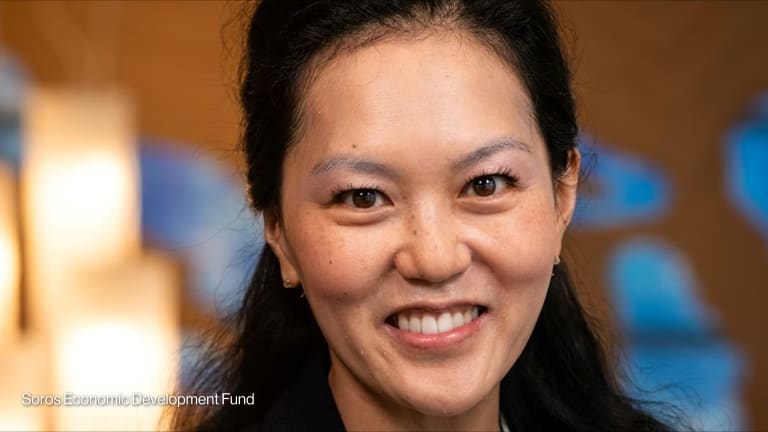
NEW YORK — The United Nations Development Programme launched 60 new Accelerator Labs last Wednesday, in an effort to hit the reset button on how traditional development work should look.
The 60 new labs, which will initially serve 78 countries, will operate with a “just do it” start-up mentality, said Gina Lucarelli, the team leader of the Accelerator Lab network at UNDP. The labs are supported by an initial $75 million, drawn from UNDP core resources as well as financing from Germany, Qatar, and Italy.
“This is not a pilot project, but a change in the way we are working. Part of the focus is grassroots innovation and the idea that people living close to the problem have critical knowledge,” Lucarelli told Devex.
“We need a different way of working.”
— Gina Lucarelli, team leader of the Accelerator Lab network, UNDPDevex sat down with Lucarelli following the launch of the labs about how, and why, this new initiative is experimenting with a different way of doing development work.
This conversation has been edited for length and clarity.
Could you talk me through how these Accelerator Labs work and why they are needed?
This is a response to what we see happening in the development environment. While development investments are making progress, the progress is not at a fast enough speed. These labs are teams of ethnographers, entrepreneurs, engineers, designers that we are bringing into UNDP to work with our experts on biodiversity and gender equality and poverty reduction. We are marrying a capability in social innovation with development expertise. We are hoping this creates new momentum to break through on some of the really difficult challenges, like growing inequality and climate change.
Who are you bringing on to these teams?
Q&A: An inventor on taking technology from lab to field
Pablos Holman, hacker, inventor, and futurist who has worked with a collaboration between Bill Gates and the Intellectual Ventures invention lab, talks about technology developments to serve the poorest.
We are hiring for three roles. There are heads of exploration, and they will possibly be data scientists, maybe designers — people who are good at spotting trends on the horizon. Then we have heads of solutions mapping. The idea here is that people who are living in poverty are already innovating in their own way. The heads of solution mapping would have an ethnography background, and they go out and look for innovations amongst people that are already out there. The last role we are hiring for is the head of experimentation. Their job is to design and test solutions on a small scale, so we can learn faster what works and what does not.
How will these Accelerator Labs be distinguished from other lines of existing development work?
We really want to start off and see what is out there in the innovation ecosystem. A core part of what the Accelerator Labs will do is accelerating things that are already ongoing. So, they are not necessarily always going to be bringing in new technology or innovation from the outside. The labs are also applying the principles of agile management. We are not just checking in every year, but more like every week on how things are going. It is really important to shrink that learning cycle, so that we accelerate the learning.
In practice, what will the work of these Accelerator Labs look like?
In Argentina, in the early discussions, Buenos Aires came to UNDP and said, “We want to be carbon neutral by 2030.” As the lab gets up and running there, what it will do is design a bunch of different experiments, some of which might be behavioral, to nudge people to use public transport. Some might be regulatory, like banning cars in a city at a certain time of day. Some of them might be a crowdsourcing experiment where people will monitor pollution levels they detect in the city.
Do you think that these labs show that the present strategies we have to achieve the SDGs are not working?
It is an acknowledgment that they are not proceeding at a fast enough pace of change. Yes, there are fewer and fewer people in extreme poverty, which is a good thing. However, the rate of that change is slowing down. I think the estimates are it is only 20 million people that will exit extreme poverty in 2019, which is not enough to eliminate extreme poverty by 2030. That is why we think we need this new method to add to the mix of policy.
Do these accelerator labs focused primarily on the work of the SDGs, or is it broader than that?
It is a response to all of the challenges that are undermining the achievement of the SDGs. Violent extremism, or the fact that up to 60% of people in Thailand could lose their jobs due to AI. These are the things that are on the horizon, but they are moving so quickly they are undermining SDG achievement. We came to the realization that there is no one silver bullet policy we can get implemented. There is no one technology. And you definitely cannot solve these issues if you are using traditional, five-year-old data sets. We need a better sense of things and we need a different way of working.








